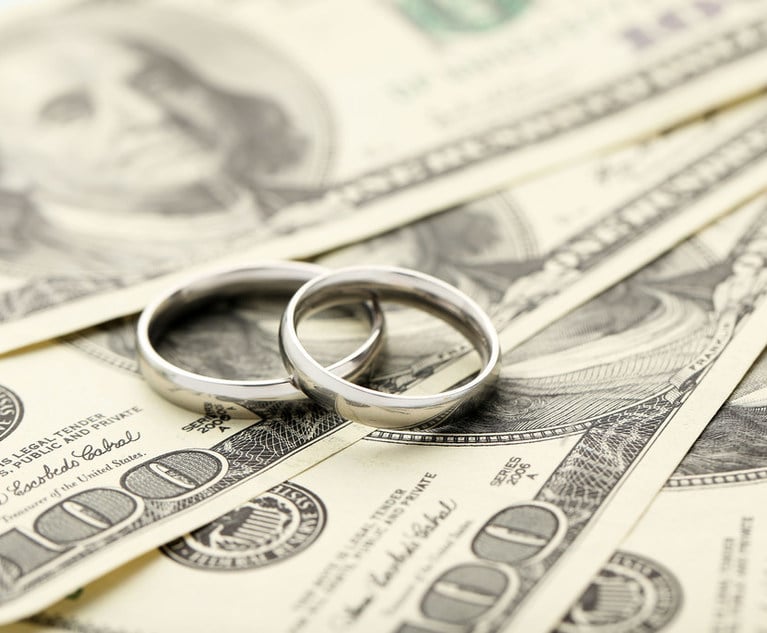Don't Let Personal Attacks Invade Your Arguments
It isn't wise to insult opposing counsel or the trial judge in your appellate briefs, writes Myron Moskovitz.
April 14, 2015 at 12:45 PM
4 minute read
I recently picked up an opposing brief in an appeal I'm handling. My opponent made some good points, but he also went after me. He called my arguments “facile,” said one of my factual assertions was “pure fantasy,” accused me of “embellishing the record,” called my inclusion of a particular case “simply inexcusable” and said my brief was “unwittingly, its own worst enemy.” To top it off, he said one of my contentions was wrong “except in respondents' fevered minds.”
When you're about to write something like this, stop and think. Ask yourself, “What if I were one of the appellate justices reading this brief? Would I find these characterizations persuasive? Would they push me towards ruling for the brief writer?” Not me. I'd be persuaded by facts, law and policy arguments—not by personal accusations and adjectives against a lawyer. “Beyond not helping, could they actively hurt the chance of persuading me?” Yes.
Instead of thinking about the merits of the writer's arguments, I'd think, “What an unprofessional jerk. Does he really think I'm stupid enough to fall for these attacks? Maybe his arguments aren't as good as I thought they were.”
|Show, don't tell
A jury assesses a trial lawyer's credibility, and an appellate justice assesses an appellate lawyer's credibility. Once either opinion takes a dive, it's hard to pull it back up.
NOT FOR REPRINT
© 2024 ALM Global, LLC, All Rights Reserved. Request academic re-use from www.copyright.com. All other uses, submit a request to [email protected]. For more information visit Asset & Logo Licensing.
You Might Like
View All
Bottoming Out or Merging Up? Law Firms That Shuttered in 2024

Blake Lively's claims that movie co-star launched smear campaign gets support in publicist's suit
4 minute read
Solana Labs Co-Founder Allegedly Pocketed Ex-Wife’s ‘Millions of Dollars’ of Crypto Gains
4 minute readTrending Stories
Who Got The Work
Michael G. Bongiorno, Andrew Scott Dulberg and Elizabeth E. Driscoll from Wilmer Cutler Pickering Hale and Dorr have stepped in to represent Symbotic Inc., an A.I.-enabled technology platform that focuses on increasing supply chain efficiency, and other defendants in a pending shareholder derivative lawsuit. The case, filed Oct. 2 in Massachusetts District Court by the Brown Law Firm on behalf of Stephen Austen, accuses certain officers and directors of misleading investors in regard to Symbotic's potential for margin growth by failing to disclose that the company was not equipped to timely deploy its systems or manage expenses through project delays. The case, assigned to U.S. District Judge Nathaniel M. Gorton, is 1:24-cv-12522, Austen v. Cohen et al.
Who Got The Work
Edmund Polubinski and Marie Killmond of Davis Polk & Wardwell have entered appearances for data platform software development company MongoDB and other defendants in a pending shareholder derivative lawsuit. The action, filed Oct. 7 in New York Southern District Court by the Brown Law Firm, accuses the company's directors and/or officers of falsely expressing confidence in the company’s restructuring of its sales incentive plan and downplaying the severity of decreases in its upfront commitments. The case is 1:24-cv-07594, Roy v. Ittycheria et al.
Who Got The Work
Amy O. Bruchs and Kurt F. Ellison of Michael Best & Friedrich have entered appearances for Epic Systems Corp. in a pending employment discrimination lawsuit. The suit was filed Sept. 7 in Wisconsin Western District Court by Levine Eisberner LLC and Siri & Glimstad on behalf of a project manager who claims that he was wrongfully terminated after applying for a religious exemption to the defendant's COVID-19 vaccine mandate. The case, assigned to U.S. Magistrate Judge Anita Marie Boor, is 3:24-cv-00630, Secker, Nathan v. Epic Systems Corporation.
Who Got The Work
David X. Sullivan, Thomas J. Finn and Gregory A. Hall from McCarter & English have entered appearances for Sunrun Installation Services in a pending civil rights lawsuit. The complaint was filed Sept. 4 in Connecticut District Court by attorney Robert M. Berke on behalf of former employee George Edward Steins, who was arrested and charged with employing an unregistered home improvement salesperson. The complaint alleges that had Sunrun informed the Connecticut Department of Consumer Protection that the plaintiff's employment had ended in 2017 and that he no longer held Sunrun's home improvement contractor license, he would not have been hit with charges, which were dismissed in May 2024. The case, assigned to U.S. District Judge Jeffrey A. Meyer, is 3:24-cv-01423, Steins v. Sunrun, Inc. et al.
Who Got The Work
Greenberg Traurig shareholder Joshua L. Raskin has entered an appearance for boohoo.com UK Ltd. in a pending patent infringement lawsuit. The suit, filed Sept. 3 in Texas Eastern District Court by Rozier Hardt McDonough on behalf of Alto Dynamics, asserts five patents related to an online shopping platform. The case, assigned to U.S. District Judge Rodney Gilstrap, is 2:24-cv-00719, Alto Dynamics, LLC v. boohoo.com UK Limited.
Featured Firms
Law Offices of Gary Martin Hays & Associates, P.C.
(470) 294-1674
Law Offices of Mark E. Salomone
(857) 444-6468
Smith & Hassler
(713) 739-1250







